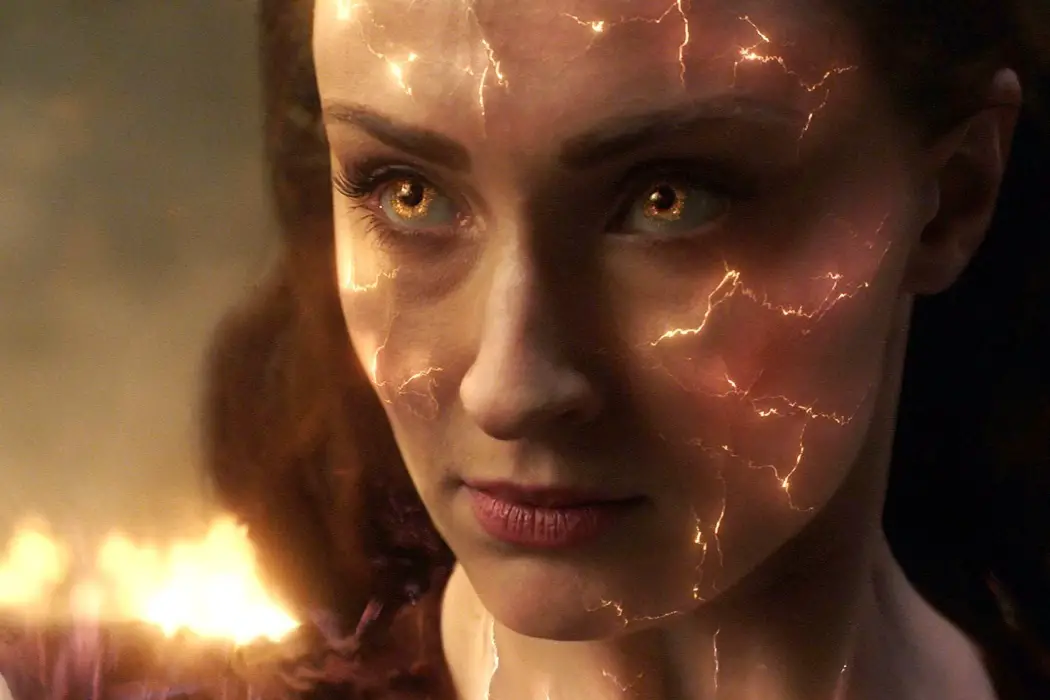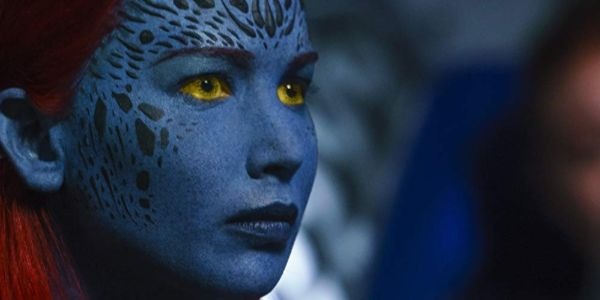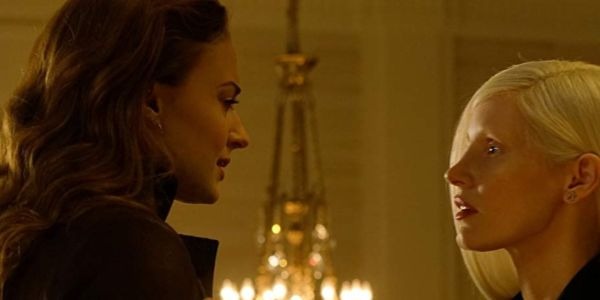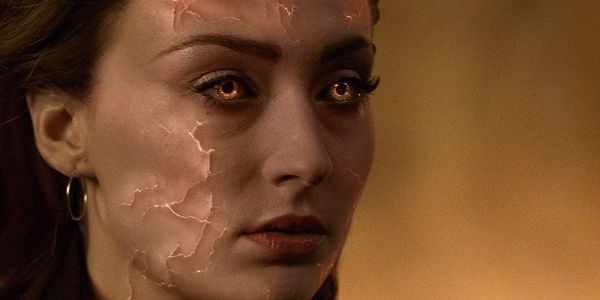X-MEN: DARK PHOENIX: A False Force Of Destruction

If favourite films tell you all you need to know…
It’s 2012, a crossover comic entitled Avengers vs. X-Men has just hit the shelves, and with it a seriously interesting iteration of the Phoenix Force, something Dark Phoenix unfortunately struggles to be in 2019 – sorry, Jean.
Much like the previous cinematic telling of the Phoenix saga, we meet Jean (Sophie Turner) at an early age, struggling with the overwhelming strength of her mutant abilities, a struggle that takes an obvious toll on her family in the most X-Men way possible. After a car crash that forces the young Mutant towards the help of Charles Xavier (James McAvoy), we return to the present timeline and to the lineup of characters setup in the post third act showdown of Apocalypse.
In a world seemingly accepting of the Mutant team and their Thunderbird-like services, space calls, and it needs their help. As the mission takes a moment to remind us of the teams abilities, a sudden burst of superhero shaped bad luck strikes, leaving the squad a cosmic force to deal with, a power that goes on to define the plot, action sequences, and everything in between.
All Info, No Starting Point
Unfortunately, the first act of Dark Phoenix later goes on to be revealed as a point of information climax, a problem that results in the remaining run time feeling like a desert dealing with a drought of detail.
Between the first encounter of Charles and Jean, and the mission that grants the titular character a serious mutation upgrade, the opening sequences exist as the only real source of orientation, leaving what’s left of the film to struggle through an obstacle course of lost information, what exactly is this cosmic force that’s latched on to Jean? Who knows, that’s what.
The issue that comes with this instant maxing out of story data revolves around development, and by the third act it becomes clear that the Phoenix Force is cinematically one note. With the powers being seemingly limitless, stemming from such an early onslaught of force, it’s impossible to develop the Phoenix further due to the lack of any tangible starting point, there’s no character arc on display because the jumping on point is so muddied with limitless otherworldly ability.
An Unfortunate False Start
Along with this early and complete look at the Phoenix Force, the film (in the most heavy handed way possible) attempts to set up conflict between Professor X and Mystique (Jennifer Lawrence), an idea that could be an interesting take on relationships within the team, if it wasn’t trying to force a social angle on the X-Men that neglects to acknowledge the literal all accepting nature of the school/comic series/franchise in its entirety.

This glaring attempt at social conflict desperately wants to test the audiences’ patience with Charles, but fails due to the nature in which the tension is delivered, retrospectively shifting the dislike towards the character of Mystique, something the film definitely doesn’t want.
This misfire costs some emotional stake when it comes to future plot points, robbing what could have been a moment of heartfelt character development of its real weight, adding to the unfortunate false start of this first act.
More Than Mutants
Amongst this collage of wild cosmic power and psychic ability, the remaining super powered mutants are struggling for screen time, a fault that contributes to Dark Phoenix’s most shining error, the team.
In a team comprised of the X-Men’s visor wearing leader, weather altering heroine, dimension hopping good guy and lightning quick marathon runner, Dark Phoenix seriously struggles to dish out any real character moments, limiting the team to quips and not much else.
This problem stems from the fact that the squad’s only personality traits are their powers, all appearing surface deep, devoid of characteristics and whittled down to momentary displays of mutant ability, leaving them to feel like simple vehicles for animation.
Why Magneto?
Not to sound like a broken record, but an issue gaining real attention arrives late on in the film’s run time, an issue concerning character motivation.
Now, Michael Fassbender is a fantastic actor, and certainly a fantastic Magneto, but it is frighteningly unclear (besides it being an X-Men product) as to why the villain is even in this film. Magneto holds no real relevance to plot, the character of Jean, if he isn’t manipulating her for her strength, or the problem that the X-Men are so poorly trying to deal with, it just results in Magneto’s presence feeling like a necessity because of the franchise, and not because of the story.

This strange character input results in such a disappointing conclusion for the villain, Fassbender’s portrayal of Eric has been wonderful, concise and understated, and he’s by no means anything less here, he just has no real reason for being in the story. It doesn’t feel like his arc and he plays too big a role in the third act to be ignored.
This problem isn’t exclusive to Magneto, the same can be said for characters like Storm and Nightcrawler, almost everyone except for the Professor and Cyclops, a perfect Segway for what might be the film’s biggest issue…
A Story Of Loss And Love
The Dark Phoenix saga feels like it’s crying out for a grounded, personal story of power, loss and love, featuring a limited cast of core characters that all play a key role in Jean’s life as an X-Men member, not a distant, all encompassing, cosmic showdown that won’t seem to have any lasting effects on her loved ones, because that clearly isn’t working.
Whilst the film tumbles into a third act of set piece driven chaos, this idea of a close, personal story well and truly falls into the wind, leaving the story to become a standard, blockbuster fight scene, abandoning any hope of a story rich in emotional consequence capable of shaping the characters of Charles and Scott, a goal that should of been set a while ago.

Elements of this character driven story really are trying to shine through, specifically during moments of wonderfully acted Beast and Professor X conversations, and it’s clear that this is what the film should be, poignant sequences of well acted character, it’s just a shame they’re so few and far between, or that the script doesn’t want to tell that story.
It’s worth noting that this issue doesn’t fall to the actors, the characters feel well understood and acted by the cast, and it’s a real shame that this team won’t get another chance at a wonderful X-Men story, because they deserve it.
As all hope of a consequential story fades away, a horde of uninteresting henchmen spring into action, pure cannon fodder for Cyclops and Magneto, the latter offering up this next critical question.
A Trainspotter’s Dream
As a set piece determined to steal any trainspotter’s wildest dreams runs away, the now imprisoned mutants find themselves having to use their powers to defend Jean from invading forces, a task they don’t seem too worried about if the usage of their powers are anything to go by.
Whilst wild henchmen board the steaming train, our main characters all band together to fight the forces, using their abilities to halt them in their tracks, sort of. Whilst a seemingly endless hoard of enemies attack our protagonists, a seriously infuriating display of abilities ensues, as characters are visibly not using their powers to their fullest extent, all in the name of plot, something that only serves to aggravate in this age of the superhero cinema.
This kind of restrained power is completely understandable in early entries of the X-Men series, being understood due to the experience of the team at hand, but in this era of mutated story tellings, audiences are expecting heroes to use their powers to their fullest extent if there isn’t any real reason not to, something Dark Phoenix can’t really justify.
Dark Phoenix: Slightly Out Of Focus
As Dark Phoenix pulls into its climactic conclusion, it feels as if without the shift from costumed action to momentous character pieces that the genre has undergone in the past decade – this film would be fine, unfortunately that transformation has been felt and seen by all, bringing audiences expectations through the roof, and unfortunately leaving Dark Phoenix a forgettable blockbuster.
The sparing moments of conversation feel strong and deserved, the cast feel like the X-Men across the board, bringing key components of the characters to life, they just aren’t as in focus as they should be in this specific story.
Dark Phoenix should be a story about relationships and power, not the cosmic heavy fight scene that it seems hellbent on delivering, Sophie Turner feels like a strong and realised Jean, it’s just a shame she isn’t given more time to be anything other than a force of destruction.
Is Dark Phoenix a memorable conclusion to Fox’s X-Men saga? And where does it sit amongst the other entries? Let us know what you think!
X-Men: Dark Phoenix was released in theaters in the US and UK on June 7, 2019. For all international release dates, see here.
Does content like this matter to you?
Become a Member and support film journalism. Unlock access to all of Film Inquiry`s great articles. Join a community of like-minded readers who are passionate about cinema - get access to our private members Network, give back to independent filmmakers, and more.
If favourite films tell you all you need to know of a person, then let Gremlins, Dumb and Dumber and 500 Days Of Summer inform your decision's infinitely.












